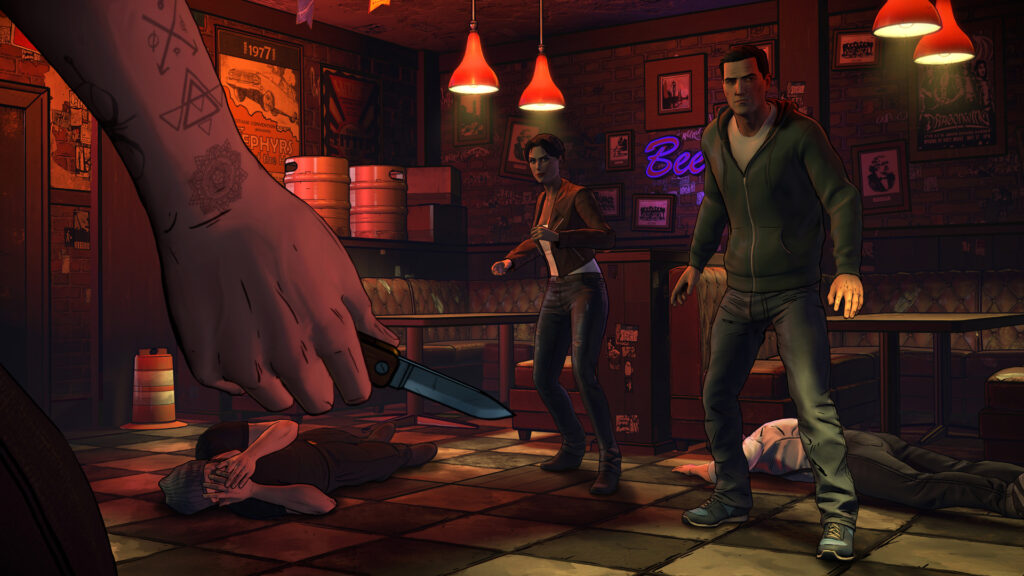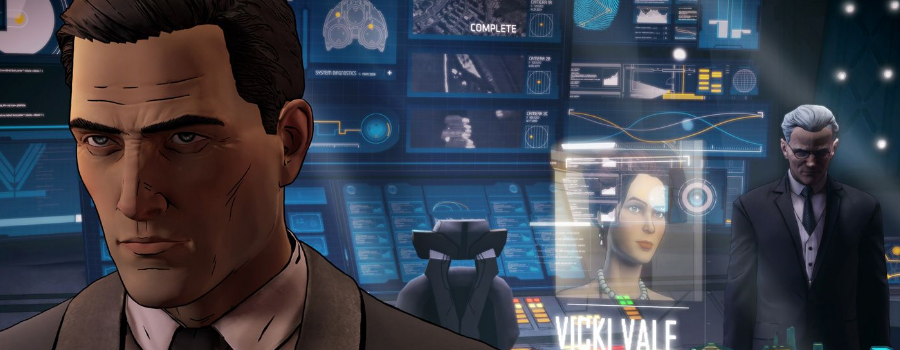On some level, every new incarnation of Batman is a remix of what has come before.
Though DC’s own tendency to reboot their caped crusader every few years has served to smudge the loosely thrown-together nature of the character’s canon, they can never seem to escape it entirely.
When he first burst into the world in 1939, Batman was just a man in a suit who fought crime. Many of the things that now seem central pillars to the character’s mythology (like The Joker or Arkham Asylum) didn’t arrive until much, much later. It’s Telltale’s willingness to rethink things from as far back as square one that makes their take so compelling in Batman: The Telltale Series.
As you play through the five-part episodic adventure, it quickly becomes clear that there are no sacred cows. Almost every aspect of the Batman mythology has been revised, rewritten, reconfigured and remixed. While Batman: The Telltale Series is very much the same style of episodic adventure game they’ve been making successfully for years now, the radical treatment of its source material helps it shine regardless.
Sure, on the surface, Bruce Wayne is still the same playboy billionaire you know and love. However, his friendships with Harvey Dent, Vicky Vale and Oswald Cobblepot (and familial affiliations with Carmine Falcone), reshape a lot of the details around that identity. They add depth and nuance and personality to him in a way that’s often forgotten about.

It’s often the case that Bruce Wayne is simply a persona used in between adventures. In Telltale’s version, his identity is much more defined – partially due to the choices the player makes. Throughout the series, situations can either be resolved with a visit from Batman or from Bruce.
Likewise, previous versions of the character’s mythos have tended to lean on the fame and fortune of the Wayne name as a way to distance Bruce from the city he’s sworn to protect. Here, things aren’t nearly so neat and tidy. This aspect is further complicated by the accusation that the Wayne fortune might be built on blood-money. While this retcon might seem like sacrilege to some fans, it opens up whole new avenues of character development for Bruce.
By comparison, the Batman sections of the game aren’t nearly quite as innovative. Although the detective investigation and tactical infiltration sequences feel right out of the Arkham games, Batman: The Telltale Series never really expresses any desire to explore the moral challenges that Batman’s unwillingness to kill brings to the table. While Telltale have gotten really good at balancing the pacing and choreography of combat encounters, they often lack the narrative punch the Bruce Wayne sections provide.
Batman: The Telltale Series is maybe the most compelling remix of the Batman mythos since Christopher Nolan’s Batman Begins, and one that I hope to see continued with a second season.

